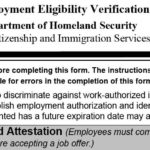Since the United States Supreme Court’s recent rulings resulting in state recognition of same sex marriages, a number of employers have asked me if they should expect an extension of workplace anti-discrimination protections to gay and lesbian employees.
There currently are no federal or Tennessee anti-discrimination statutes that expressly reference sexual orientation as a prohibited basis for workplace discrimination or harassment. Consequently, the answer to the question is fairly simple – for such protections to be created there will either need to be legislative action in Washington D.C. or Nashville, or courts will have to interpret existing workplace anti-discrimination statutes to include sexual orientation as a protected group.
It is generally understood that there is little likelihood of legislative action to expand workplace anti-discrimination provisions in the near future barring a change in the majority party in Congress or the Tennessee legislature. Thus, if change is to occur, it most likely will be the result of judicial interpretation of existing statutes.
The statute receiving most attention in this regard is Title VII of the Civil Rights Act of 1964, which prohibits discrimination by employers with 15 or more employees on account of several factors, including race, national origin, religion and “sex.” To date, federal courts have almost uniformly construed the term “sex” to mean gender. In other words, unlawful sex-based discrimination means treating an employee differently in wages or other terms and conditions of employment on account of being male or female. Several federal appeals courts have in the past been asked to extend the prohibition of discrimination on account of “sex” to include discrimination against an employee based on her sexual orientation, but have refused to do so. These courts have generally held that alleged discrimination against someone because of the gender of the person to whom he is married or dates has nothing to do with the employee’s gender.
Recently, however, there has been a renewed effort at the federal level to incorporate sexual orientation within the definition of “sex” under Title VII. The question is currently pending for a decision by at least one federal appeals court. While that same court previously addressed the issue in 2000 and held that Title VII protections did not extend to discrimination on account of sexual orientation, we saw how a substantial number of courts reversed previous rulings regarding the constitutionality of same sex marriage bans in a very short period of time.
In July of this year, the Equal Employment Opportunity Commission (EEOC) issued an opinion pertaining to federal employees stating for the first time that any “sexual orientation is inherently a sex-based consideration” and discrimination based on it constitutes a violation of Title VII. That ruling only applies to the federal employment sector, but it demonstrates how change in public sentiment can often influence judicial and administrative interpretation of statutes.
While the law has not yet changed on this subject, wise employers should be considering if there is anything they should be doing differently in terms of policies, training, etc. in anticipation of a sudden change in the law. I believe there are several actions employers should be undertaking now. Most employers strive to create a safe and welcoming environment for all employees, regardless of their personal characteristics and life choices and whether or not a law exists to prevent discrimination, harassment or retaliation based on those characteristics and choices. To that end, I recommend several simple steps that may reduce exposure to claims by LGBT employees should the currently prevailing law change.
1. Revise Your Sexual Harassment Policy. Many employers have only a “sexual harassment” policy. While it is extremely important that there be a written policy specifically against sexual harassment, it should also extend to harassment based on other legally protected classifications such as race, national origin, religion, etc. I now encourage employers to include an additional statement that management does not condone and will not tolerate any form of harassment against employees based on any personal characteristic or other aspect of her life and that employees who are subjected to such conduct should feel safe reporting it to management.
2. Encourage Employees to Report Instances of Perceived Unfair Treatment Toward LGBT Employees. The employer’s harassment policy and its equal employment opportunity statement should not only encourage employees who feel they are being subjected to harassment or unfair treatment due to some personal characteristic or other aspect of their life to report that concern, but also encourage co-employees to do the same.
3. Train Managers to Recognize Unfair Treatment/Harassment Toward LGBT Employees. Start training managers within your organization to understand the employer’s commitment to treating all employees with fairness and dignity and how to recognize and react to perceived instances where that is not occurring.
4. Counsel/Discipline Employees Who Engage in Inappropriate Conduct Toward LGBT Employees. Communicate that employees who violate company policies regarding anti-harassment of others on account of sexual orientation will be subject to the same extent of discipline as for other forms of harassment.
These are simple steps that will lay the groundwork for protection not only for employees subjected to inappropriate conduct (illegal or not), but also for the employer in the event of a sudden and unexpected judicial holding changing the landscape of anti-discrimination law. Experienced employment counsel can assist you in drafting and implementing these changes and assessing other possible actions to take.
If you would like to speak to John Lawhorn on this or any other subject, he may be reached at (865) 546-9321.
RELATED POSTS:

John M. Lawhorn of Frantz, McConnell & Seymour, LLP practices extensively in the field of Labor and Employment law and regularly advises clients concerning federal and state laws pertaining to employment discrimination, retaliation and harassment, workplace policies, OSHA/TOSHA compliance, wage and hour compliance, labor/management relations, employment contracts and in many other aspects of the employment field. He regularly represents employer and employee interests in Tennessee State and federal courts on a wide variety of employment related matters.




